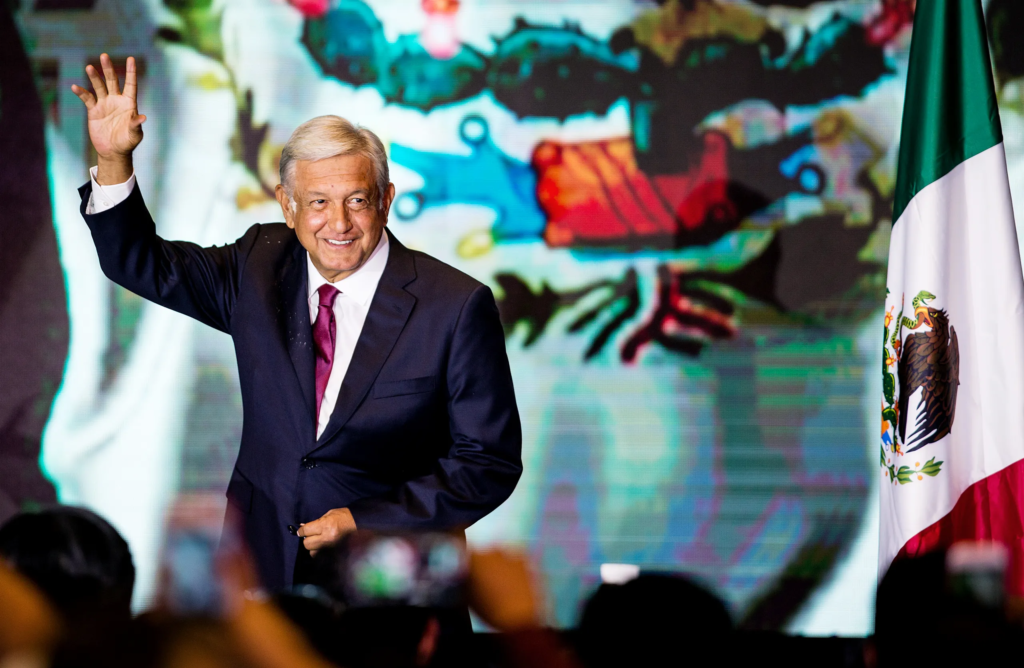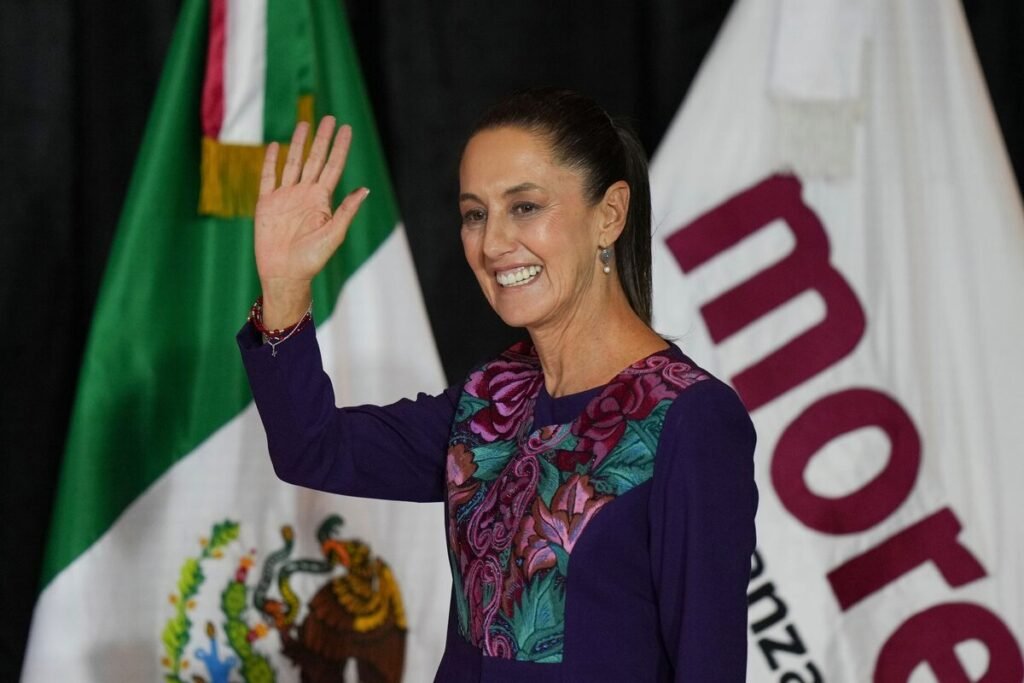The June 2 presidential elections in Mexico have marked a decisive shift in the nation’s political landscape. The ruling party MORENA, founded by Andrés Manuel López Obrador (AMLO) in 2014, secured a sweeping victory for its candidate Claudia Sheinbaum, who won 60% of the popular vote in a three-way race. This success has solidified MORENA’s influence with a two-thirds legislative majority, paving the way for Sheinbaum to continue AMLO’s legacy of reform. Poised to build on the “Fourth Transformation,” Sheinbaum’s administration promises to advance policies that prioritize social equity and economic stability.
Official statistics reflect a progressive transformation under AMLO’s leadership: real wages have surged by 30%, the lowest-income earners have seen their incomes rise by nearly 99%, and Mexico’s Gini coefficient has declined as poverty fell by 5%, lifting over five million people out of poverty — the largest reduction in two decades. These achievements have earned AMLO high approval ratings, reflecting his approach to left-wing, anti-corruption governance. Now, Sheinbaum, with a mandate even larger than AMLO’s, will take up this mantle, aiming to fortify the gains of the working class and deepen MORENA’s commitment to structural reforms.


Reshaping Anti-Corruption Politics
Central to AMLO’s philosophy has been a redefinition of neoliberalism, which he has linked to corruption. His administration’s anti-corruption stance deviated from the typical neoliberal playbook of privatizing state industries. Instead, AMLO and MORENA have reframed corruption as a tool wielded by elites to funnel state resources to the private sector at the expense of public welfare. AMLO’s view sees the Mexican state not as a contracting body but as a mechanism that has historically worked for the benefit of the wealthiest through tax breaks, unchecked subsidies, and legal loopholes.
AMLO’s vision of “republican austerity” reflects this anti-corruption focus. This concept involves cutting waste and dismantling layers of intermediaries between the government and its citizens, eliminating clientelism and limiting public funds siphoned by third-party contractors and private interests. His government has taken direct control of previously outsourced services, reducing the influence of private entities in essential sectors like energy and infrastructure. Sheinbaum has pledged to continue this path, ensuring that resources directly reach the citizens and reinforcing government accountability in every public sector.
Claudia Sheinbaum: A Methodical Campaign and Clear Vision
True to her background as a scientist, Sheinbaum’s campaign was organized, systematic, and policy-driven. Holding a steady lead, she rigorously connected with voters, rolling out a 100-point program that includes extending social benefits, raising minimum wages, expanding national healthcare, and leading a public sector-driven transition to renewable energy. Her careful strategy, in stark contrast to her opponent Xóchitl Gálvez’s inconsistent platform, resonated with a Mexican electorate that had already experienced MORENA’s commitment to social welfare and transparency. Despite attempts to portray her as merely AMLO’s “chosen successor,” Sheinbaum emphasized that she was part of a larger movement rather than a single-figure brand. Her campaign not only championed the continuity of AMLO’s reforms but also proposed fresh initiatives aimed at addressing challenges like affordable housing, transportation, and environmental sustainability.

This victory has come despite a concerted international campaign to undermine MORENA. Right-wing media, bot networks, and opposition figures consistently portrayed AMLO and MORENA as corrupted by cartel influence. However, these claims failed to sway Mexican voters, who recognized the tangible benefits of MORENA’s policies in their daily lives. In the face of ongoing criticism, Sheinbaum remained unwavering, asserting that the people, not international observers or media narratives, are the true judges of her administration’s achievements.
Realigning Mexico’s Working Class
Sheinbaum’s victory also symbolizes a shift in Mexican political dynamics, with MORENA becoming the home of Mexico’s working class. Whereas in 2018, votes for AMLO were dispersed across different social classes and political ideologies, Sheinbaum has united this base more cohesively under MORENA’s banner. This shift marks a clear alignment with the struggles and aspirations of everyday Mexicans and underscores the popularity of MORENA’s welfare policies, from wage increases to expanded healthcare.
By choosing to keep MORENA’s vision alive, Sheinbaum has committed herself to sustaining and expanding AMLO’s achievements, making this “second floor” of the Fourth Transformation distinct yet deeply connected to the work of her predecessor. In doing so, she underscores that MORENA’s success is rooted in its dedication to economic justice, anti-corruption, and social equality.
Mexico on the International Stage: A New Model of Leftist Governance
Sheinbaum’s government is expected to maintain its position as a leftist model of anti-corruption governance for Latin America and beyond. Mexico’s achievements in income redistribution and public accountability have already drawn attention from global leftist movements seeking effective alternatives to neoliberalism. By transforming anti-corruption into a movement-driven by class struggle, MORENA has brought the working class back to the center of leftist politics in a way that Western democracies have struggled to achieve.
As Sheinbaum moves forward, her administration’s policies will likely continue to prioritize national control over vital resources, challenging international energy interests and promoting public-led economic initiatives. Her clear mandate allows her to push forward reforms that aim not only to empower Mexico’s working class but also to reposition Mexico as a model for equitable, anti-corruption governance on the world stage.
This historic victory in Mexico offers a blueprint for the global left, exemplifying how sustained, policy-focused efforts can realign political loyalties and transform governance. Sheinbaum’s presidency signals the deepening of Mexico’s Fourth Transformation, with the potential to redefine leftist governance in a way that combines social equity, transparency, and economic self-determination.

